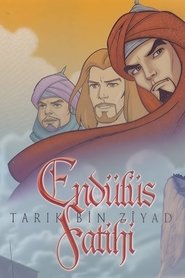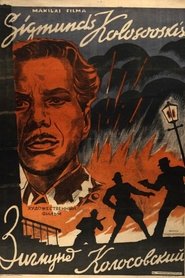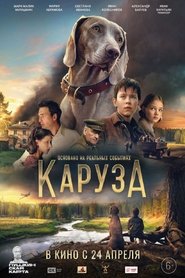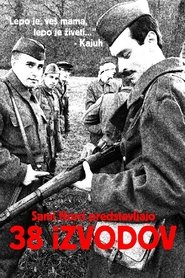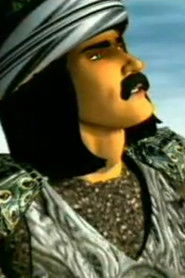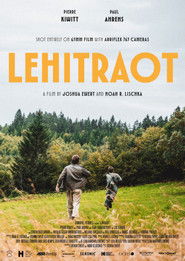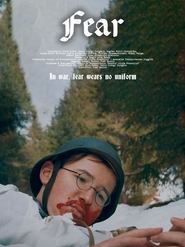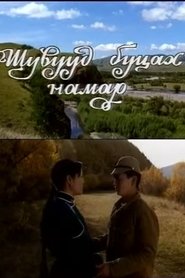Top Rated War Movies on Pantaflix - Page 401
-
Endülüs Fatihi Tarık Bin Ziyad
2005
Before Europe, where oppression and tyranny reigned, came to know justice and civilization... The story of the Islamic army led by Tariq ibn Ziyad, who brought justice from Mecca to the shores of Tangier, and their journey to a new continent... The defeat of the Spanish king by the Islamic army... A comprehensive animated film made in Turkey, lasting approximately two years and consisting of thousands of images... -
A Soldier's Blessing
0000
A Soldier's Blessing
0000
When a US soldier tries to escape German attackers, he discovers a wounded ally and must decide to either flee or help him. -
The Prince Of Transylvania
2023
In 17th-century Transylvania, an impulsive young ruler's hunger for glory sows chaos as neighboring powers and scheming courtiers vie for influence. -
Mountain Emperor
2014
Mountain Emperor
2014
The film is dedicated to the centenary of the First World War, on the territory of the municipality of Ljubovija, and is based on true events. It tells the heroic resistance of the not very powerful but proud Sokol Brigade, made up of third-callers and recruits from the villages around Ljubovija. -
Немая кукушка
2024
Немая кукушка
2024
In the winter of 1939, during the Soviet-Finnish war, a soldier named Zarif from Tatarstan found himself in the crosshairs of a Finnish sniper. Zarif sings a sad Tatar song, which he sang with his beloved Kashifa in peacetime. The Finnish sniper Ziyatdin turned out to be a Tatar, to whom his mother sang this song as a child. This is how the Soviet soldier Zarif and the Finnish sniper Ziyatdin met and became friends. Who are they - enemies or brothers? These are eternal questions to which there is only one answer: the most important thing in your life is love. Everything in your life has meaning only when there is Love in it. -
Zygmunt Kolosovsky
1946
Zygmunt Kolosovsky
1946
Polish anti-fascist Zygmunt Golemba, posing as Baron Fedrucci or a Catholic priest, blows up German headquarters, frees Polish prisoners, and kills Gestapo generals. His name becomes a symbol of revenge and hatred of the enemy... -
马石山十勇士
2008
马石山十勇士
2008
-
Karuza
2025
Karuza
2025
Based on true events, this tale follows the extraordinary bond between a boy and his dog in besieged Leningrad. In 1939, young Mitya finds joy in the companionship of his loyal dog, Karuza. Their idyllic life is shattered when World War II erupts, plunging Leningrad into a brutal siege where starvation looms over its residents. As despair grips the city, Karuza with her keen instincts and unwavering courage ventures into the perilous streets to scavenge for food. Inspired by Karuza’s remarkable bravery, Mitya decides to join her. Together, they are forging a path through despair and hopelessness. However, their efforts take a dangerous turn when they are discovered by German soldiers during one fateful outing. -
Distant Close Years
1976
Distant Close Years
1976
The Cheka officers are conducting an operation to return the gold that the Basmachi plan to exchange for weapons. -
38 Copies
2011
38 Copies
2011
Short film about war actions and poetry of Karl Destovnik (1922-1944), a Slovenian poet, translator, resistance fighter, and Yugoslav people’s hero. -
Sultan Alparslan
0000
Sultan Alparslan
0000
-
Mayor of Lowell
2025
Mayor of Lowell
2025
This short documentary chronicles the culture and arts of Cambodian Americans and the Lowell, MA community through the eyes of Sokhary Chau, the first Cambodian American Mayor in the United States. Chau immigrated to the U.S. at seven years old to escape the Khmer Rouge genocide. Through this unique story that showcases the best of Lowell—immigrant success, assimilation, history, and the development of the arts—we see a man born into a war-torn country who comes to America to be a first-in-the-nation leader. -
LEHITRAOT
2025
LEHITRAOT
2025
-
The Assignment
0000
The Assignment
0000
-
Lapland War
0000
Lapland War
0000
Young soldier Heikki fights on the Karelian Isthmus alongside his friend Pauli. Arvo, recently released from prison, joins the company, challenging the others' views on war and duty with his worldview. The ceasefire raises hopes of returning home, but it soon becomes clear that Finland must turn against its former German allies in Lapland. At the same time, Saara, who works as a German interpreter in Rovaniemi, must choose her future: stay in Finland or flee to Germany with her beloved, Major Duisberg. -
Fear
2025
Fear
2025
March 1945, on the frontlines of the Tatra Mountains, Romanian and German soldiers prepare for battle, bound by the same hidden fear. In the chaos of combat, beyond bullets and grenades, a harsh truth emerges: in war, they are all just humans. -
Deception
2011
Deception
2011
In this cinematic adventure "Deception", critically unacclaimed director Drew Spooner showcases a classic story of good v. evil. Post-traumatic war veteran Johnny (Connor Shur Linnerooth) seeks revenge against the United States after a grave misunderstanding in Vietnam. Together with the help of his evil henchman (Alexander Gudding and Jake Hundley) they plot to launch an electromagnetic pulse across the nation to send America into chaos and take over the entire world. Only Nighthawk (zero-time Academy Winner Adam Boe) has the power to stop this madman through the use of sheer, brute force. With the help of his commanding officer known only as "Marine" (Reed Martin) as well as communications technician Stanley (Caleb Homuth), they train a co-op of elite soldiers and lead the team into one last battle to save America; to save the world. -
Birds Leave in Autumn
1992
There is a story from a Japanese prisoner of war who said that the good nature of Mongolians will lead to their rebirth as Mongolians in the afterlife. It is a film that values the honest character of the Mongolians, who are very kind and generous.
 Netflix
Netflix
 Amazon Prime Video
Amazon Prime Video
 Apple iTunes
Apple iTunes
 Apple TV Plus
Apple TV Plus
 Disney Plus
Disney Plus
 Google Play Movies
Google Play Movies
 Paramount Plus
Paramount Plus
 Hulu
Hulu
 HBO Max
HBO Max
 YouTube
YouTube
 fuboTV
fuboTV
 Peacock
Peacock
 Peacock Premium
Peacock Premium
 Amazon Video
Amazon Video
 The Roku Channel
The Roku Channel
 AMC+
AMC+
 Kocowa
Kocowa
 Hoopla
Hoopla
 The CW
The CW
 Vudu
Vudu
 Starz
Starz
 Showtime
Showtime
 PBS
PBS
 Pantaflix
Pantaflix
 FXNow
FXNow
 Tubi TV
Tubi TV
 Kanopy
Kanopy
 Comedy Central
Comedy Central
 Crunchyroll
Crunchyroll
 Microsoft Store
Microsoft Store
 Redbox
Redbox
 Sun Nxt
Sun Nxt
 ABC
ABC
 DIRECTV
DIRECTV
 Crackle
Crackle
 Fandor
Fandor
 Plex
Plex
